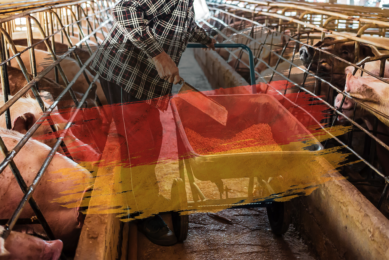Innovad aims for further growth in animal nutrition

Innovad’s ambition is to produce innovative ?molecules for animal diets. All About Feed talked to Ben Letor, one of the company’s directors, about the current industry challenges and the future plans of this Belgian company.
Innovad, with its production facilities in Essen and newly acquired headquarters in Antwerp, produces around 45,000 tonnes of feed additives per year. The company, part of the PMF Holding, is focusing on feed additives and farm pack solutions. Products include solutions for mycotoxin control and liver support, gut integrity, attractants, antibacterials and Salmonella and natural pigmentation. The last three years at Innovad have been marked by further specialisation, geographical expansion and additional manufacturing technology leading to strong growth. Ben Letor, one of the directors of the company since the end of 2010, explains that the industry’s needs have been changing over the last few years. “We see a great interest in promoting and stimulating gut health by using certain feed additives. Since the EU banned antimicrobial growth promoters almost ten years ago, and the more recent pressure on the use of therapeutic antibiotics and medicated premixes in USA, we see the need to maintain a high health status in animals via a different route. The focus is therefore on using nutritional strategies instead of medication. This can be, for example, via natural alternatives in the drinking water or in feed application, so that feed intake is optimised, immunity is boosted and digestibility (efficiency) is improved,” Letor explains. He also sees more market demand for herd or farm specific selective tools, often issues for some of the larger integrations. The solution can be applying certain additives via drinking water for example.
Ben Letor: “The industry often asks: How can we measure the benefits? The research that we do is meant to help answer this question.”
Changes in ingredient use
Letor also addresses food safety and traceability as some of the challenges the feed industry is facing. “The EU for example sets clear targets to combat Salmonella. At the same time, the costs for control and monitoring programmes are increasing. We therefore have a strong focus in our portfolio to target these challenges via innovative nutritional strategies,” according to Letor. A third main challenge is overcoming the issues of using low cost ingredients in animal diets. Letor says: “High-quality ingredients (protein sources) are becoming less available for animals. These ingredients often go to human food first or become pricy. Alternative ingredients are used more often as the costs of feed comes under extreme pressure. To maintain a good feed intake, a palatable feed and addressing the energy gap are therefore growing concerns. We have extended our production facilities with a dedicated unit for the manufacturing of our attractants line and phytogenic blends. And of course we have a great challenge to overcome stress, related to potentially contaminated and toxic feedstuffs. Understanding the issues, helping to monitor and develop innovative tools with the aid of University researchers is our commitment. We are embarking into a University research project that we are co-financing that should lead to new analytical tools enabling farmers to truly measure the effect of a toxic contaminant on performance, liver health and eventually appreciate the value of specific additives. The industry often asks: “How can we measure the benefits? This research is meant to help address and answer this question eventually.”

The market for liquid products is increasing, accoring to Ben Letor. Pictured here is the product Escent, a liquid anti-stress, mycotoxin control and animal revitalisation solution. [photo: Emmy Koeleman]
Challenges gives boost to business
These growing industry challenges are also reflected in Innovad’s growth and the opening of more offices worldwide. “If we look at the last three years, we have opened many new offices and hired new collaborators. We want, and we need, to be close to the industry’s local needs,” says Letor. The two most recent new offices are the ones in the USA (August 2013) and Mexico (August, 2015), with plans for China by the end of the year. Letor: “In both Mexico and USA, our focus is on dairy followed by antibiotic alternatives in monogastric and toxins control approaches. With our target release and precision technology, validated under both EU and USA conditions and respective research institutes, we have focused in delivering affordable rumen by-pass amino acids for milking cows and slow release gut health tools for monogastrics production looking at lowering their antibiotic dependence.” Innovad also notices an increasing demand for liquid feed additives (next to powder formulations). This is why the company increased the storage and manufacturing capacity for these liquid reacted formulations and dry products, now reaching 20 bulk towers. That move corresponds to the changes in market dynamics seeing an intensified usage of on-farm solutions in combination with in-feed additives. For the future, Letor sees most opportunities in continuing to work on providing diagnostic tools capable of measuring the effects of disorders and the efficacy and values of feed additives. The focus is mainly on gut health disorders and mycotoxins risks.











